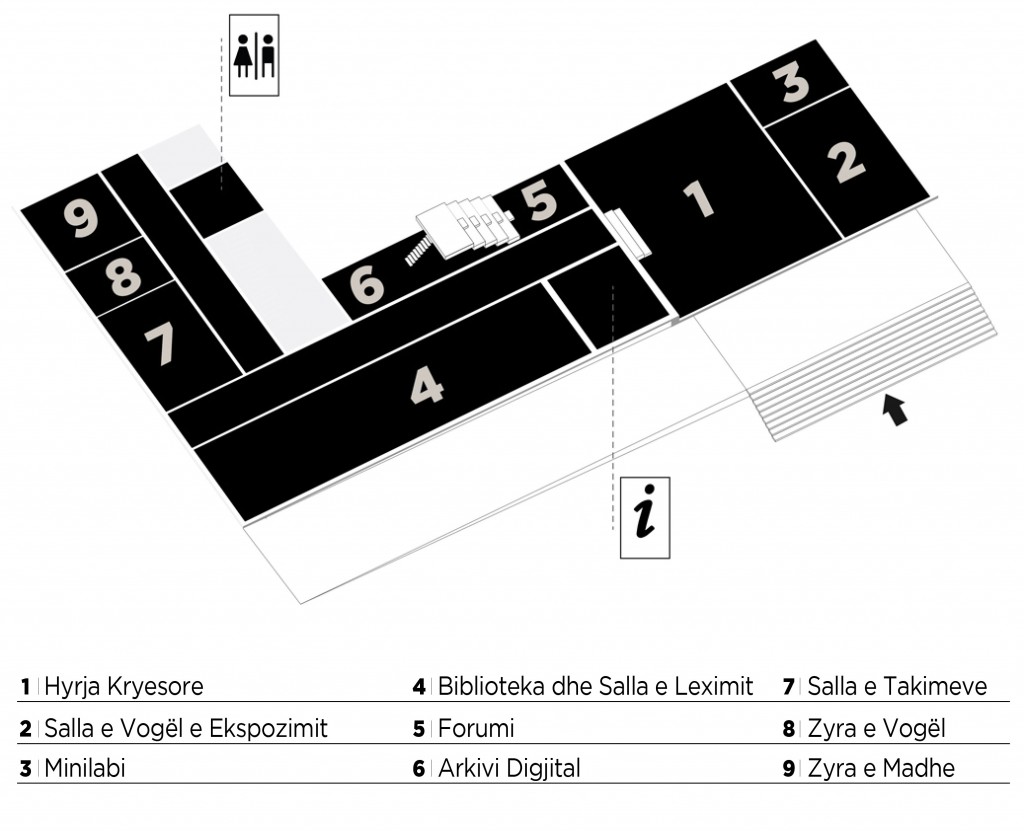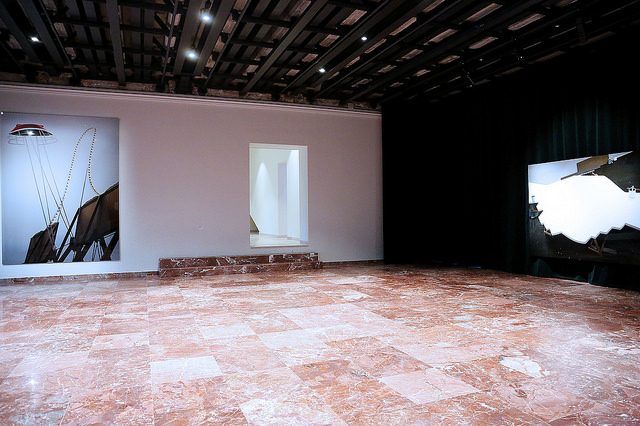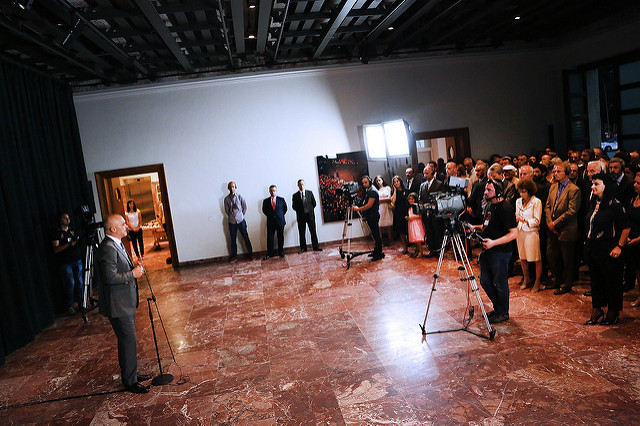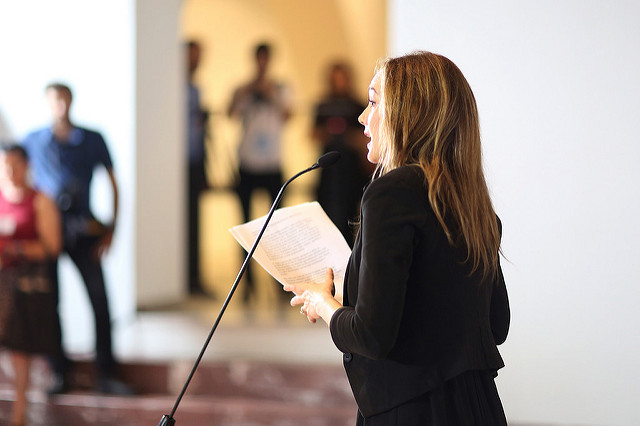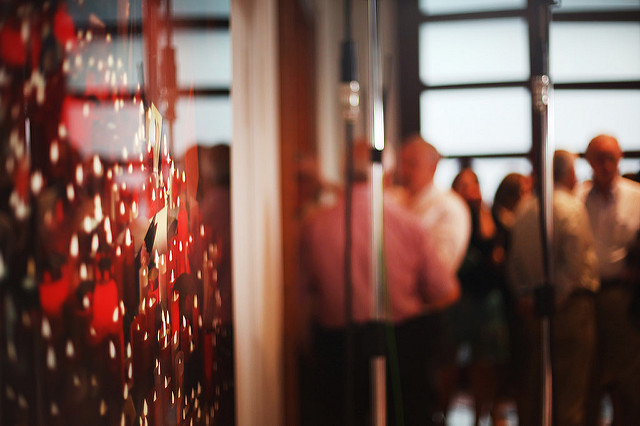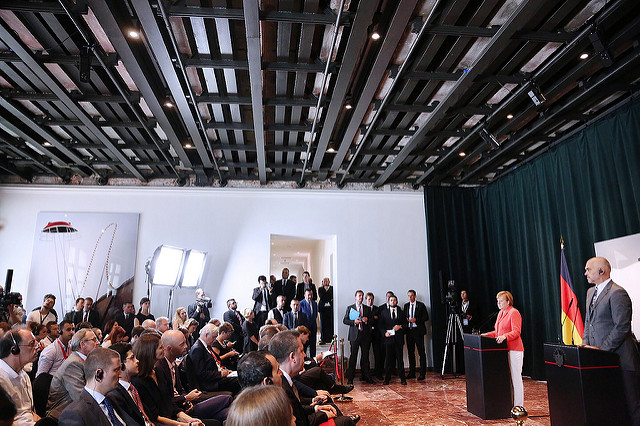The Center for Openness and Dialogue comes as a result of the personal initiative of Prime Minister Edi Rama. The objective was simple: to transform a part of the headquarters of the Council of Ministers into a space in the service of citizens, to convey the message of openness, transparency and transformation. Translating this goal into a concrete project has been, without doubt, a work far more challenging.
How it can turn from a historic building with high security measures, isolated from contact with the citizens who daily pass by, into an open space of dialogue and exchanges? How can a space that until now has been seen by the public as a stately center of power, turn into a space that invites for inclusion in the study, design and implementation of public policies? How it can be reframed in sign of transparency, openness and transformation, bringing something new and unique for the Albanian citizens?
The project shown to the citizens in its final form has managed to answer all these questions and complicated dilemmas. The Center for Openness and Dialogue gives people much more than just physical access to the building of the Council of Ministers. With the help of digital infrastructure and work of curators for the opening of the archives of the Council of Ministers, this center practically provides citizens, researchers or those interested with full access to every decision, document or material related to the decisions and policies of the government, but not only. An important part of it is the Prime Minister’s Library, with rich assets in the fields of policy, European integration, diplomacy and beyond, offering thus a rich source, that until now was almost impossible to exploit, for everyone that is interested to further study of the challenges of governance.
Besides collections of documents and photos of the Council of Ministers in a digital archive of COD, the library contains collections of Administrative Sciences and Public Policy, collection on the European Union and international relations, collection of art and urbanization, special books collection, manuscripts, personal letters and other rare documents, as well as periodic collections.
Of course, access to information is only half the story. COD’s essentially mission is not just to convey information, but also to absorb opinions and beliefs, intellectual and artistic exchanges, which are designed in fact, as a vital and unique part of this project.
Comprised of three areas – library, where there are spaces for study; digital hall, where projections and presentations are shown; and “Meet the Artist” exhibition hall, COD offers a vision of openness and democratic progress, while each of the halls is designed to serve as the catalyst of a chain of transformations in approach to governance.
Each of these areas operates under an integrated calendar, which features thematic exhibitions of individual artists, increasingly organized and based on open proposals, with the theme on public interest. COD develops and cures connections with an international network of intellectuals, academics, artists and representatives of civil society, to ensure an active, independent life, rich in activities and events.
COD is opened to the public every day of the week, except on Sundays.
